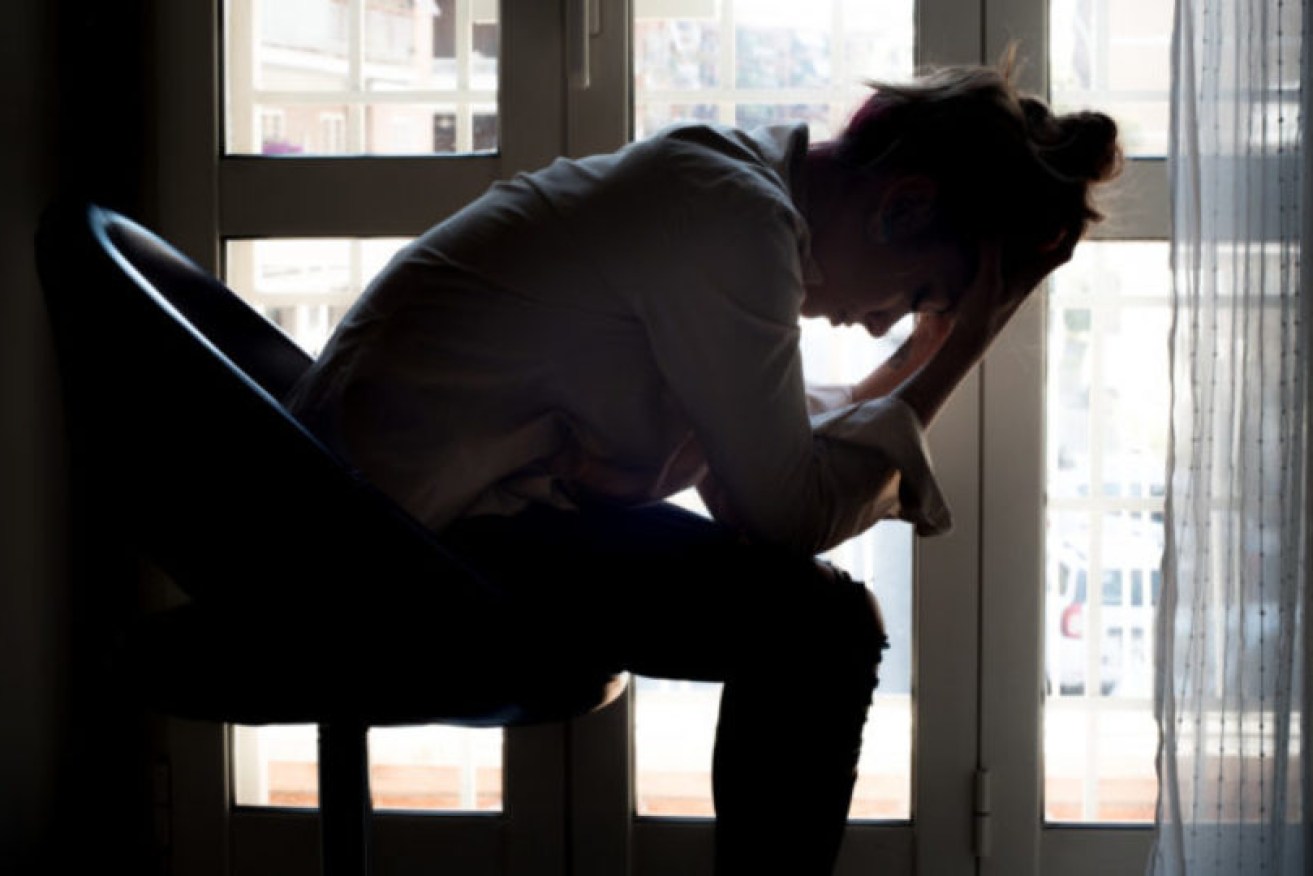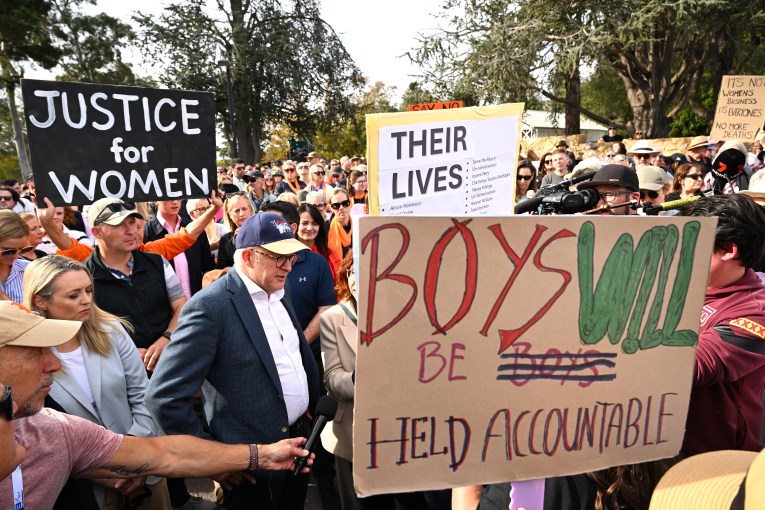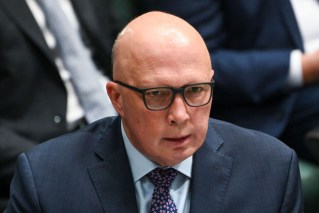$17 billion cost of workplace mental health issues sparks call for more help


There has been $2 billion pledged in mental health funding, but unions say more is needed. Photo: Getty
The federal government’s mental health reforms have been celebrated by some as potentially the most important changes in Tuesday’s budget, with praise for new counselling centres for adults and a laser focus on care for those recovering from a suicide attempts.
Even trade unions are backing the Coalition government’s pledges, but are calling for more to be done on mental health in the workplace, in the face of new figures showing job-induced psychological harm could be costing Australia $17 billion a year.
“The government has thrown billions at mental health services, but is failing to prevent mental illness or sexual harassment occurring in workplaces,” claimed Australian Council of Trade Unions assistant secretary Liam O’Brien.
Hunt’s mental health milestones
Josh Frydenberg’s third budget included $2 billion to fund the National Mental Health and Suicide Prevention program, pouring millions into early intervention measures, treatment for eating disorders, and a new National Suicide Prevention Office.
Also on the table is nearly $500 million for a new network of 57 counselling centres for adults, to be known as Head To Health, modelled on the successful Headspace facilities for young people, plus $159 million for universal aftercare services for people who have attempted suicide.

Greg Hunt. Photo: AAP
Health Minister Greg Hunt, who lobbied for the massive mental health investment, said the aftercare funding was “maybe the most important” measure in his portfolio’s budget measures.
Finance Minister Simon Birmingham also backed it as one of the “most significant” announcements on Tuesday, while several other senior government sources told The New Daily they thought the mental health funding could be the most important budget items.
The government also pledged:
- $278.6 million to expand Headspace services
- $79 million for Indigenous suicide prevention initiatives
- $54.2 million for child mental health hubs
- $26.9 million for treatment of eating disorders and a national research centre
- $47.4 million for perinatal mental health screening
- $16.9 million for counselling for culturally diverse communities
- $6.3 million for support services for fly-in fly-out workers
- $58.8 million to boost numbers of Indigenous mental health workers
- $15.9 million to upskill GPs in primary mental health care
- $4 million to provide free trauma counselling sessions for bushfire survivors.
Experts praise investments
Beyond Blue chair – and former Labor prime minister – Julia Gillard said she welcomed the investment.
“The universal aftercare package is a significant investment that, subject to state and territory co-investment, will provide crucial support to everybody who is discharged from hospital after a suicide attempt,” she said.
Lifeline chairman John Brogden was hugely supportive of the package, which he called “extraordinary”.
“We’re seeing a multibillion-dollar investment in the next four years, and the objective is very clear from what the government has been saying … and that is there is a need to fund mental health in Australia, to get better outcomes,” he told TND.

Julia Gillard backed the changes. Photo: AAP
“Whilst we are seeing a strong bounce back from COVID, there will still be a number of people for whom getting back to what life used to be like, will be a struggle. We continue to see a need to help people as we come out of COVID.”
Jason Trethowan, CEO of Headspace, said the commitments were “solid” and “promising”, while online counselling service ReachOut called the plans “forward thinking”.
Professor Ian Hickie, co-director of the University of Sydney’s Brain and Mind Centre, welcomed the spending but called on the federal government to undertake structural reform of the system.
He called it “the first phase of a much larger and more complex deal” with the states and territories, which would cost “many more billions”.
Greens health spokesperson Senator Rachel Siewert criticised the package for not doing more to make mental healthcare more affordable.
She said underlying issues contributing to mental health, like housing stress or poverty, were being ignored.
Unions want workplace action
Workplace stress is among those underlying issues, with the ACTU calling on the government to do more in addressing distress linked to jobs.
A new report from The Australia Institute, released on Thursday, estimated the costs of workplace-associated mental ill health could be $17 billion per year.
The left-leaning think tank reached the number by extrapolating data from the Bureau of Statistics and the Productivity Commission on the costs of suicide and self-harm, lower participation, income support payments, absenteeism and presenteeism at work.
The report linked those problems to excessive workloads, unsocial work hours, exposure to traumatic events on the job, workplace bullying and harassment, or employment insecurity.
The ACTU seized on the findings to call for the government to do more in protecting employees.

Stress at work was cited as a major mental health factor. Photo: AAP
“Whilst unions welcome the budget measures for mental health services, it is clear more needs to be done on prevention,” Mr O’Brien said.
“Strengthening and clarifying the existing legal responsibility of employers to minimise illness risks could save the economy an estimated $15.8 billion each year through reduced health expenditure and improved productivity.”
The ACTU called on Industrial Relations Minister Michaelia Cash to support such reforms at an upcoming meeting of state workplace ministers.
“The Morrison government has failed to implement preventative measures to stop mental health injuries occurring in the first place, especially in workplaces,” Mr O’Brien said.
The budget also included $3.5 million for the Human Rights Commission’s review of parliamentary culture, called in the wake of Brittany Higgins’ allegations and other scandals in politics.
It also set aside $15 million to implement the recommendations of the Sex Discrimination Commissioner’s Respect@Work report into workplace harassment and safety.
That measure includes sexual harassment training for all workplace health and safety inspectors in the Commonwealth system.








